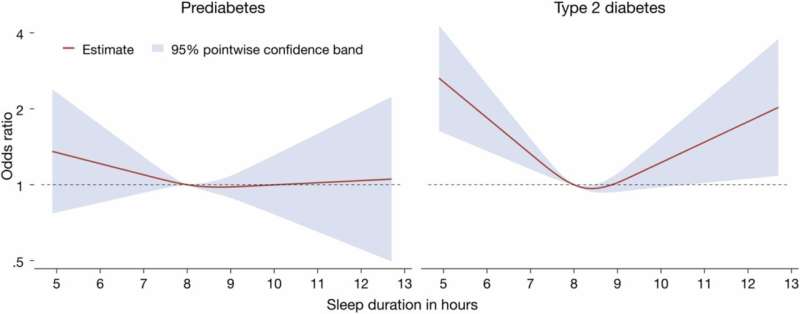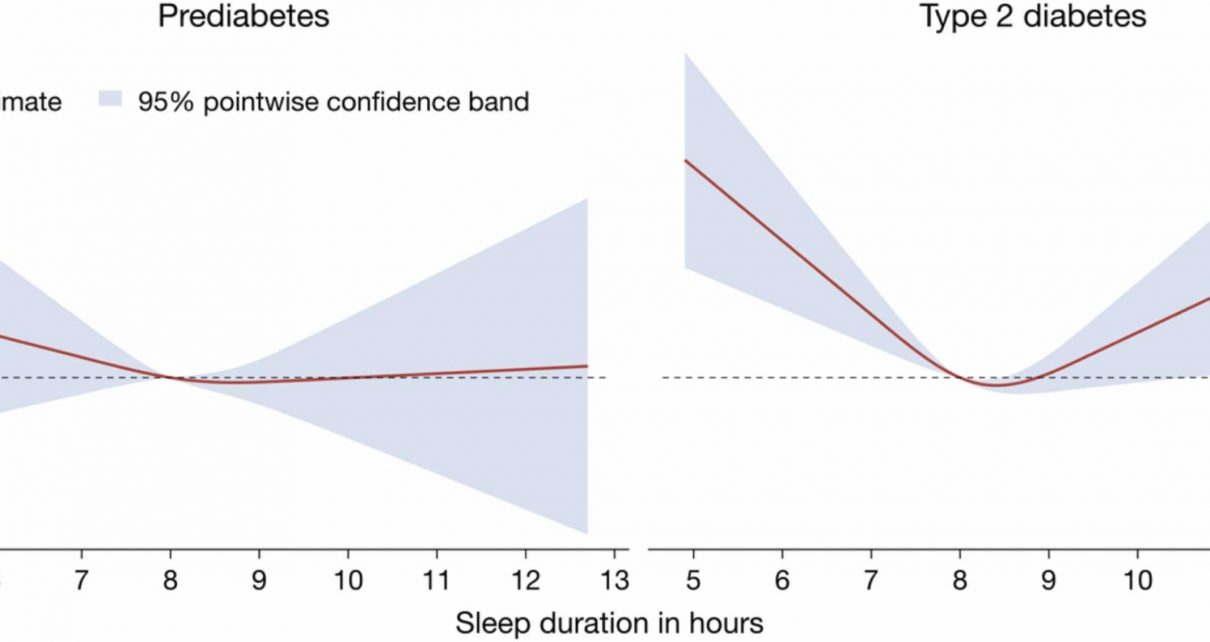
A team of medical researchers with a diverse mix of backgrounds, all in the Netherlands, has found a link between sleep duration habits and the likelihood of developing type 2 diabetes, regardless of other lifestyle risk factors. In their study, reported in the journal Sleep Health, the group analyzed data obtained as part of the Maastricht Study regarding sleeping duration.
Prior research has suggested that there may be a link between a person’s sleep habits and their likelihood of developing type 2 diabetes—along with other lifestyle risk factors. In this new effort, the research team looked to data from the Maastricht Study to see if it might provide some insight into an association between sleep duration and prediabetes and/or diabetes type 2.
The Maastricht Study was conducted by other medical researchers affiliated with multiple institutions in the Netherlands with the goal of learning more about cardiovascular disease, type 2 diabetes and other chronic conditions. In the study, which ran from 2010 to 2018, 10,000 volunteers underwent medical examinations and other testing designed to explore why some people get some diseases and others do not. In this new effort, the research team used data from the study to look for a link between sleep patterns and type 2 diabetes.
In their work, the research team looked at data for 5,561 volunteers between the ages of 40 and 75 years old. The researchers analyzed data describing sleep habits, most specifically, the number of hours on average a person slept—such data was provided via questionnaires and accelerometers attached to the thigh. Each of the volunteers also had regular glucose tolerance tests to determine if they were nondiabetic, prediabetic or if they had type 2 diabetes (those with type 1 diabetes were excluded).
The researchers conducted regression analysis on the data to determine any links between average sleep duration and likelihood of developing type 2 diabetes. They found what they describe as a U-shaped relationship—those people who regularly slept much more (12 hours) than what was considered normal or those who slept less (five hours), were found to have a slightly elevated risk of developing type 2 diabetes, regardless of any other lifestyle risk factors.
More information:
Jeroen D. Albers et al, Both short and long sleep durations are associated with type 2 diabetes, independent from traditional lifestyle risk factors—The Maastricht Study, Sleep Health (2023). DOI: 10.1016/j.sleh.2023.06.009
© 2023 Science X Network
Source: Read Full Article



